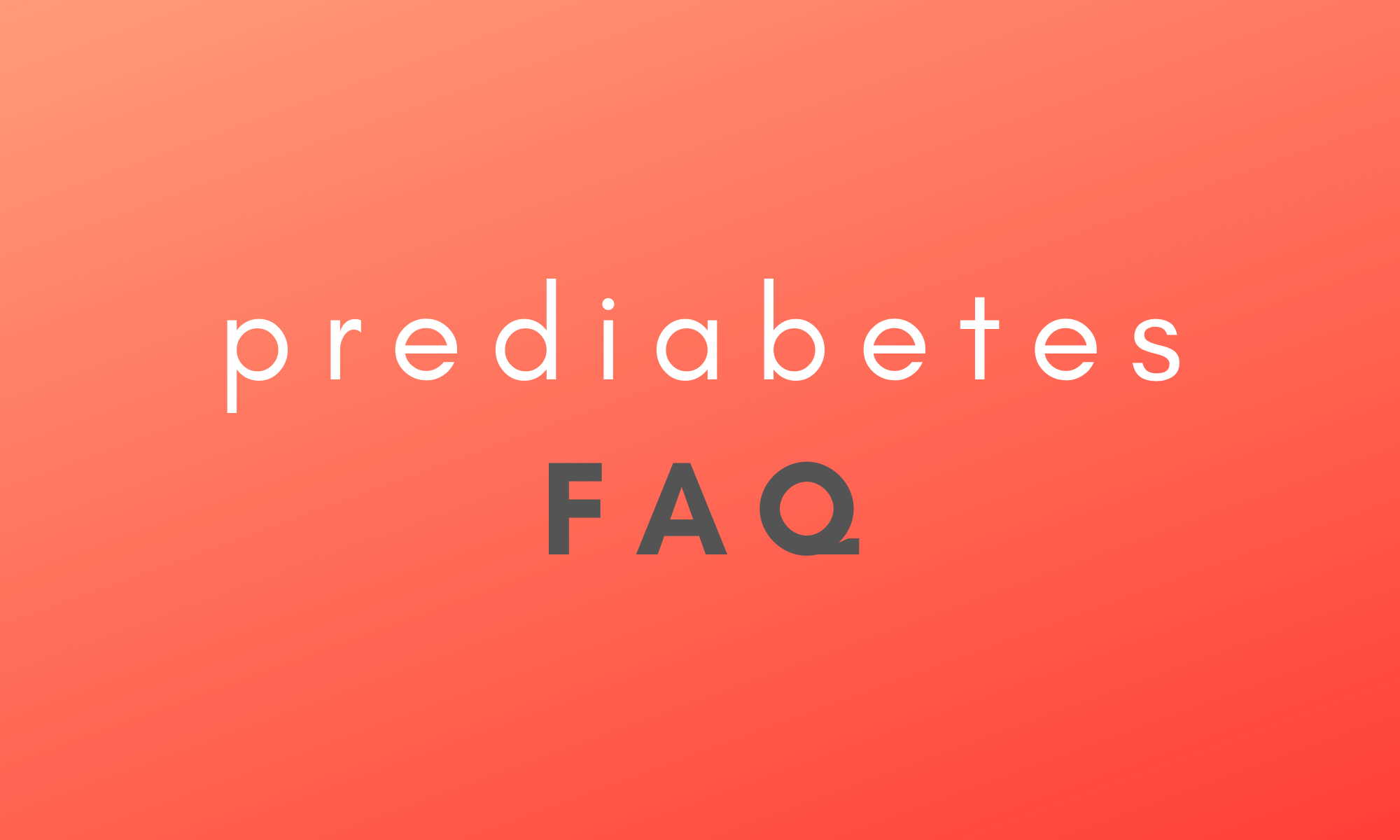What is prediabetes?
You have prediabetes when your blood sugar is higher than normal, but not high enough to be in the type 2 diabetes range. This condition puts you at increased risk of developing type 2 diabetes or other health problems, such as heart disease and stroke. Prediabetes should be taken seriously, but it’s not necessarily permanent, as it can be reversed in many cases.
What causes prediabetes?
Many cells in our body like to eat sugar for energy. Carbohydrates turn into sugar when we eat them. In response, the pancreas produces a hormone called insulin, which goes to the cells wanting energy and “unlocks” them, allowing the sugar to enter. If there’s more sugar than insulin, the sugar has nowhere to go and builds up in your blood.
Will I develop type 2 diabetes if I am prediabetic?
You have an excellent chance of stopping the progression to type 2 diabetes. It is not a one-way path, although if you do nothing to combat it, you may develop type 2 diabetes at some point.
What are the risk factors for prediabetes?
Most specialists agree that these are the primary risk factors:
Age 45 and older: Prediabetes can come on at any age, but the older you get the more at risk you are.
Affected family members: If your parents or siblings have type 2 diabetes, that increases your chance of becoming prediabetic.
Weight: Are you chubby, obese, fat? Do you carry that extra weight around the middle? This is one of the biggest risks for prediabetes.
Exercise: Actually, the lack of exercise. If you’re not active at least three times a week, this puts you at risk.
Ethnicity/Race: Although it’s not clear why, if you’re Latinx, African American, Native American, Asian American, or Pacific Islander, you may be at higher risk of developing prediabetes.
PCOS: Polycystic Ovary Syndrome. If you have it, it is a risk factor.
Gestational Diabetes: Developing this during pregnancy, or giving birth to a baby weighing more than nine pounds, increases your risk of developing prediabetes.
Sleep: If your sleep is interrupted or just not good, this is a risk factor.
How do I know if I have prediabetes?
Not everyone has symptoms. The best way to determine if you’re prediabetic is to get a blood test done. There are exceptions to how blood test results are interpreted. Your provider will let you know what they mean for you, but the following is a general picture of what testing is done, and what the results indicate.
The first test snaps a picture of what your blood sugar has been doing for the last two or three months. It’s called the Hemoglobin (A1C) test and is usually the first one providers use when diagnosing prediabetes.
A1C below 5.7 percent is normal
A1C between 5.7 and 6.4 percent is prediabetes
A1C 6.5 percent or higher in tests done on two different days is type 2 diabetes
Next is the Fasting Blood Sugar test. Blood is taken after you’ve been fasting for eight hours or overnight.
Fasting blood sugar below 100 mg/dL is normal
Fasting blood sugar between 100 and 125 mg/dL is prediabetes
Fasting blood sugar 126 mg/dL or higher (in tests done on two different days) is type 2 diabetes
The third test is not used for everyone. It’s called the Oral Glucose Tolerance test. After fasting for eight hours or overnight your blood is tested. You then drink a sugary concoction and two hours later your blood is tested again.
Blood sugar below 140 mg/dL is normal
Blood sugar between 140 and 199 mg/dL is prediabetes
Blood sugar 200 mg/dL or higher is type 2 diabetes
Is prediabetes reversible?
The answer is yes, prediabetes is reversible for some. Three factors play a big part for the majority who reverse their prediabetes diagnosis: weight loss, exercise, and a change in eating habits. Work with your provider and a nutritionist to develop a common-sense plan of action.
Is there treatment for prediabetes?
In addition to weight loss, exercise, and a change of eating habits, healthcare professionals will sometimes recommend metformin, a drug that helps your body control its high blood sugar levels. If you are able to reverse your prediabetes, you’re typically taken off of metformin.

